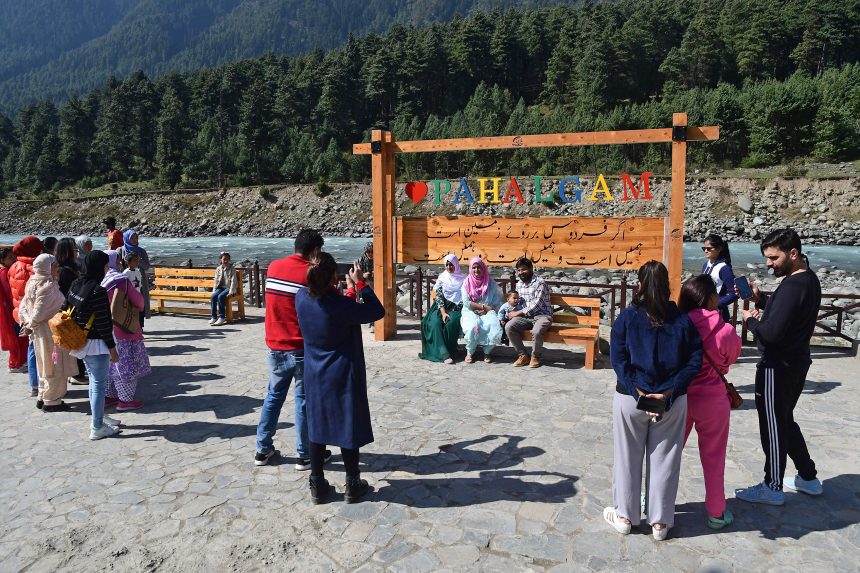Pahalgam, May 04: Eleven days after the brutal terror attack at Baisaran meadow in Pahalgam, the popular tourist destination is showing faint signs of recovery as a trickle of visitors begins to return. However, the usual hustle and bustle that define the town remain absent, and the lingering impact of the April 22 attack is deeply felt across the local tourism sector.
The attack, which shocked the region and claimed several lives, came at a time when the tourist season was beginning to pick up momentum. The once-busy lanes of Pahalgam, typically lined with pony wallahs, ATV operators, and taxi drivers, now wear a subdued and somber look.
A short distance from the “Welcome to Pahalgam” signboard, the popular selfie point overlooking the Lidder River has started to witness some activity again. Over the weekend, former Chief Minister Dr. Farooq Abdullah visited the area, interacting with tourists and posing for selfies—a symbolic gesture meant to instill confidence among potential visitors.
Among the recent arrivals was Yogesh, a tourist from Pune, Maharashtra, who arrived on Saturday with his family. “Convincing my family after hearing about the attack wasn’t easy,” he told Rising Kashmir. “But I stayed in touch with our guide and felt assured things were under control. We were determined to come.”
Yogesh added that the hospitality extended by the locals reaffirmed their decision. “People here have been incredibly kind and welcoming,” he said.
Gulzar Ahmad, President of Tourist Taxi Stand No. 2, said Pahalgam had been witnessing an unusually strong tourist turnout before the attack, with April numbers rivaling those typically seen in May.
“For decades, Pahalgam has been known for its peace—even during the most challenging times in the Valley,” he said. “This incident has shattered us. We have 600 local cabs at our stand. Business is one thing, but our hearts are broken. Our guests came to enjoy the beauty of this place—what wrong did they do to deserve this? If it had been us, maybe we’d have accepted it… but this pain is different.”
Pony operators, who provide rides through the scenic meadows and forest trails, are among those worst affected. Bashir Ahmad, a local pony wallah, said he hasn’t had a single customer since the day of the attack.
“This is usually the time when we earn enough to survive the winter months. Now, everything is uncertain,” he lamented. “There are around 1,500 horses in Pahalgam—and nearly all are idle. Tourists may be coming, but they are avoiding the interiors, where pony rides were once in high demand.”
Locals describe the attack as one of the most devastating incidents in recent memory and are urging the government and tourism authorities to take swift steps to rebuild confidence and restore the flow of visitors that sustains the region’s fragile economy.








